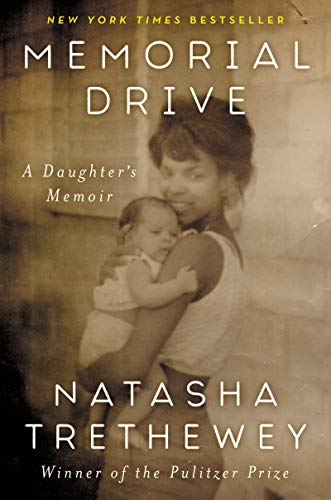Trethewey was born to a beautiful, young black mother and a white Canadian father in the strictly segregated Deep South. Her early years with her parents, living amongst the extended maternal side of her family was happy and her memoir is filled with joy as she describes those early years. But her parents drifted apart after her father went back to school and they ultimately divorced. She and her mother moved to Atlanta where her mother got a job as a social worker and eventually met Big Joe, the man who will be Tasha's stepfather and who will murder her mother. Trethewey recounts the physical abuse her mother endures and the emotional abuse she herself faces whenever Big Joe is around. She also tells, fairly dispassionately, of the ways in which the system fails her mother over and over again. A teacher doesn't report the abuse Trethewey tells her about. A person at the women's shelter brushes it off as normal when Natasha calls to say that her mother got into her car with Big Joe and something is wrong. The policeman assigned to watch her mother's apartment all night the night she was murdered left his post.
Trethewey's recounting of life with her mother and stepfather is patchy and she ruminates on the nature of memory. She talks of intentionally forgetting those years and the constant fluctuating levels of terror but if her head doesn't remember, she still carries the trauma and misplaced guilt over her mother's death deep in her bones. Her telling is dreamy, philosophical, and poetic but it is strangely emotionally removed, flatter than it should be, almost as if despite wanting to open up in this memoir, she is still protecting herself from the full brunt of emotion. And while she discusses the fact of her erasing what she could of those years, the lack of her half brother's presence (and also to some extent that of her biological father) is a strange omission. She was 19 when her mother was murdered by Big Joe and she is reckoning with her memories 30 years after the fact but it all felt unsatisfyingly incomplete. Almost at the end of the memoir, there is a transcript of several phone calls between her mother and Big Joe after he's gotten out of prison for assaulting Gwen in which he threatens her and she tries to reason with him. The transcripts are quite long given the overall length of the book and while they are horrific, they don't really add anything that Trethewey hasn't already shown the reader about this murderous, delusional man. It feels somehow wrong to criticize this book in any way given the terrible thing that Trethewey is sharing but in the end, I just didn't connect with the way it was written and I wanted to know more than I was given (and that I certainly wasn't owed). Others have raved about this though so perhaps take my opinion with a grain of salt.







No comments:
Post a Comment
I have had to disable the anonymous comment option to cut down on the spam and I apologize to those of you for whom this makes commenting a chore. I hope you'll still opt to leave me your thoughts. I love to hear what you think, especially so I know I'm not just whistling into the wind here at my computer.